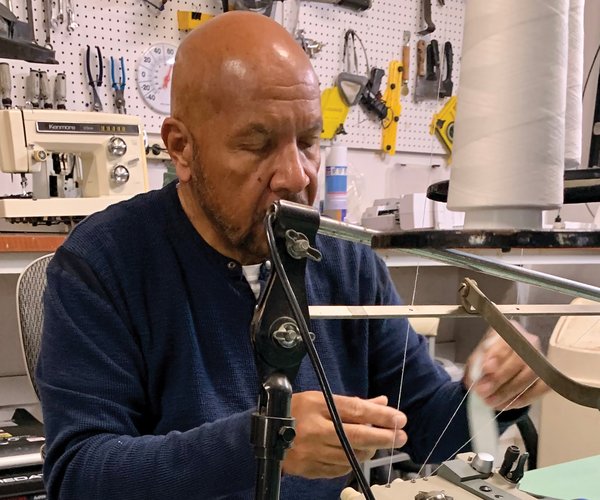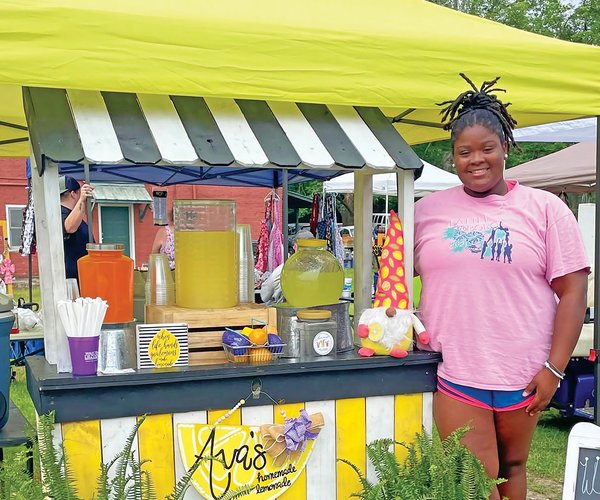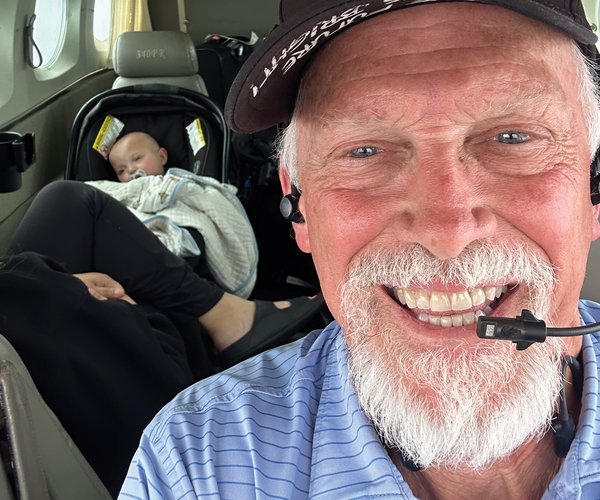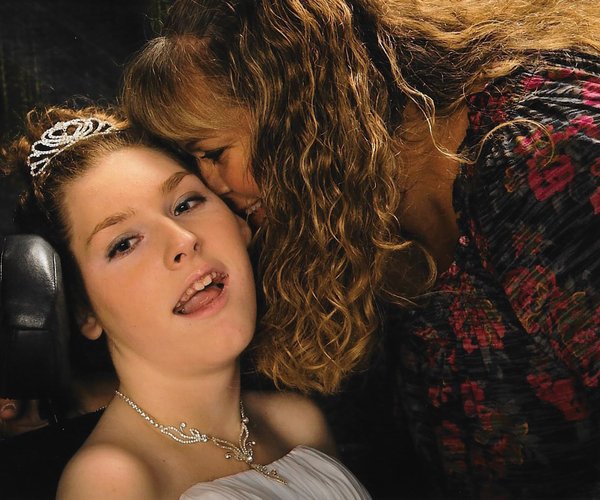I am nominating Dr. Charles Bonds because he has been a mentor, leader, teacher and colleague for me for the past 30 years. He has been faithful to his spiritual service, active in the community and an advocate for those who have been left behind. His journey through life continues to be remarkable despite obstacles he is facing. He is always upbeat, positive, caring and willing to go the last mile to help others. In short, I recommend him with high regard and look forward to his being named a “wise man.”
--Randy Gunter, nominator
Dr. Charles Bonds hails from a small town in Alabama, a place about 4,000 people call home. After graduating from high school in 1962, he attended Alabama State University. He still remembers exactly what items he’d placed in his suitcase.
“I had a suitcase that contained three pairs of pants, three shirts, three undershirts, three pairs of underwear, two pairs of socks and one pair of shoes, and a coat I slipped in of my brother’s,” he recalled.
But clothing wasn’t the only thing it contained.
“The most thing I had in that suitcase, besides the clothes, was hope,” Bonds said.
Bonds had always wanted to be a teacher. In fact, he thinks he was simply born to do so.
“I was born to be an educator. I think the moment that my father’s sperm and my mother’s egg met, and that zygote was formed, something said, ‘This is a teacher,’” he said. And he had a plan early on to be a teacher who made a difference.
“When I was in fifth or sixth grade, I had a friend who stuttered. He had a terrible stutter. The other students made fun of him. I had so much empathy for him, I said to myself, I’m going to be a teacher and I’m not going to let that happen to anybody or to any of my students,” he said.
At first, Bonds wanted to teach science and math. He had to drop out of college briefly as his parents didn’t have the money for him to return. When he did return, he found that he would have to wait a year to take the proper courses in sequence, and he didn’t want to wait that long. So he changed to elementary education.
After graduation, he went to Wrens, Georgia, teaching all subjects for fifth grade students.
“When I went to Wrens, I learned after teaching my first year, I don’t know very much about teaching reading,” he said, laughing. So he determined that he would apply for a reading program at Georgia Southern, because he truly wanted to learn all he could to help his students learn to read.
From there, he went to Valdosta, Georgia, and taught reading language arts for sixth grade students. In 1972, Bonds earned his master’s degree from Georgia Southern. He started that same year with the federally-funded Right to Read program, and the next year, he moved to the College of Education at GSU, where he remained for 24 years. Along the way, he went on earn his education doctorate degree from the University of Florida.
Teaching students to read was of utmost importance to Bonds.
“Teachers touch lives forever. If you can’t read, you don’t get life’s fulfilment. If you’re going to advance, you must know how to read. You never can acquire self-long learning if you can’t read. It doesn’t matter if you’re rich or poor, male or female, black or white,” he said.
Bonds aspired to be the kind of teacher who didn’t feel he should only teach black kids so that they could advance. He wanted to teach all kids so that they could. Seeing students who can’t finish school for any reason or struggling academically still really affects him. He has been known to reach into his own pockets to provide tuition. And it’s something he says he never wants repaid — seeing them succeed is repayment enough.
“Education is just that much a part of me,” he said.
When asked what teaching has taught him, Bonds smiles and says, “Oh boy.”
“I think teaching has taught me to be more empathetic. It’s taught me that education is not a discriminatory process. It’s available to anyone who wants it,” he said.
Bonds also learned a lot from the teachers he has taught at Georgia Southern. One in particular was local retired educator Nan Rushing.
“If you are a teacher, there are students you carry around with you forever. I love Miss Nan. And I call her Miss Nan, because she is a true Southern belle. I learned a lot from her when she took a class or two from me,” he said, adding that he still remembers a couple of her presentations.
Along the way, Bonds has served the community by being a Bulloch County School Board member for 15 years, and has also worked with Habitat for Humanity. He’s active at his church, Original First African Baptist Church, where he has sung in the choir for 45 years, and is on the deacon board. He is especially proud of having chaired the committee that helped build the church’s social hall, a $250,000 project.
Bonds and his wife Lella, have been married for 52 years. Their only son, Charles III, lives with them and is raising his daughter, Charlize Teresa, named for her grandmother and great-grandmother.
Bonds has been retired for 22 years, and says he has lots of things to occupy his time and gain fulfillment. Now blind, he enjoys listening to books on a wide array of subjects. He says he’s been listening to books on bacteria lately, due to the virus. He also enjoys religious themed books as well.
Bonds has always enjoyed music, and since purchasing a keyboard, he spends time most days playing it.
“My wife says, ‘Every morning you have your concert to the Lord.’ I really enjoy that time,” he said, laughing.
Bonds had begun learning to read music prior to his blindness, but he’s continued to play by ear. He’s written a Christmas hymn, which a student at GSU put on CD for him, called “A Bethlehem Stable.” He is quite proud of his song, and often sings it at churches and senior gatherings in the area.
Being blind hasn’t slowed Bonds down.
“If you have a disability, you can’t let that disability disable you,” he said. “I feel like sometimes, that’s what people do. Not only with a disability, such as I have, but even such things as arthritis. You just resign yourself to not doing anything, not staying involved in the community and your work as well.”
When asked how he feels about being one of the Three Wise Men, Bonds smiles and pauses. He recalls that one of his classes gave him a trophy that bears the inscription, “The Sapient Professor.”
“Isn’t it ironic that I’m getting the chance to be called one of the Three Wise Men?” he said, laughing.
Bonds says his first thought was of the three wise men written of in the Bible. They gave gifts to the baby Jesus, which he wrote about in his song.
“I thought about that and how that relates to this. ‘Three wise men, from countries of old, brought three gifts, of frankincense, myrrh and gold.’ The three of us don’t have gifts of frankincense, myrrh and gold, as such, but I think what we’ve had to offer is the equivalent of those gifts, when you give what you have to the community and you give it unselfishly, then those are the gifts that are given to you so you can go and help the community and give to the community and bless the community with what the Lord has blessed you with. Those are the gifts,” he said.
And according to the sapient professor, the most lasting gifts that anyone can give are love, gentleness and kindness.
“I think that those are gifts that are everlasting. Those are the gifts you give that people will always remember,” he said. “Those gifts can’t be for a certain group. They have to be for the whole community.”





